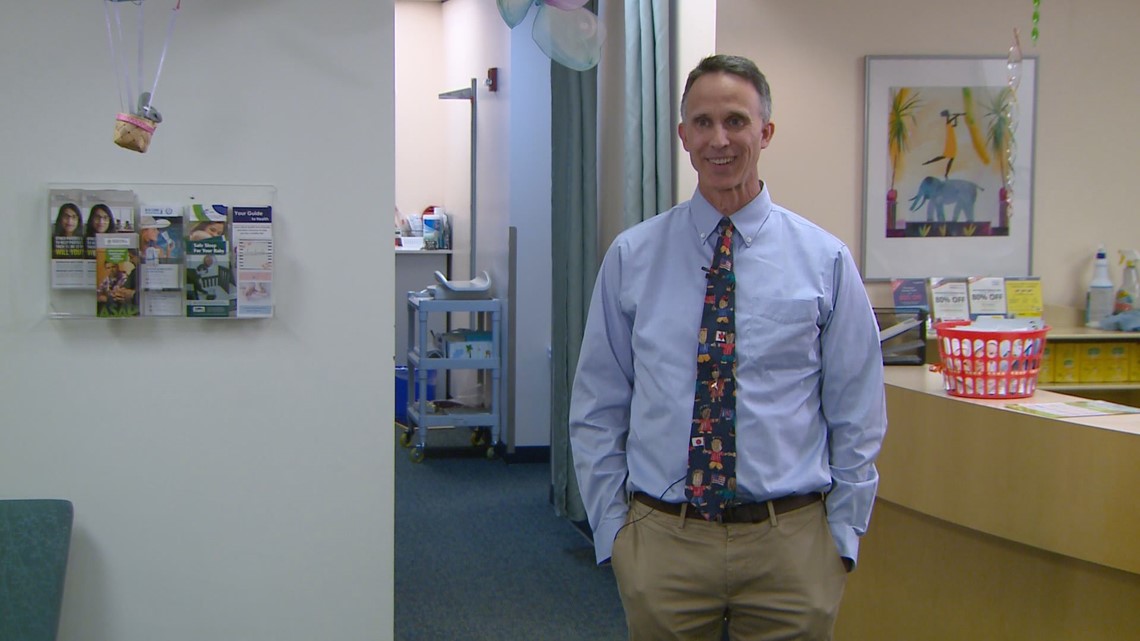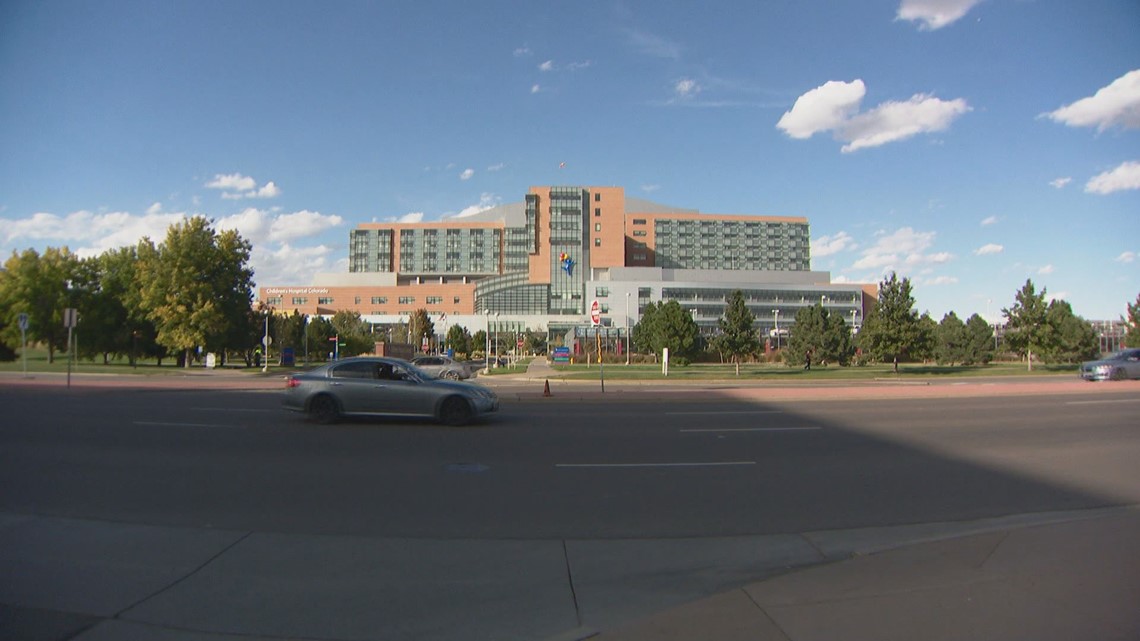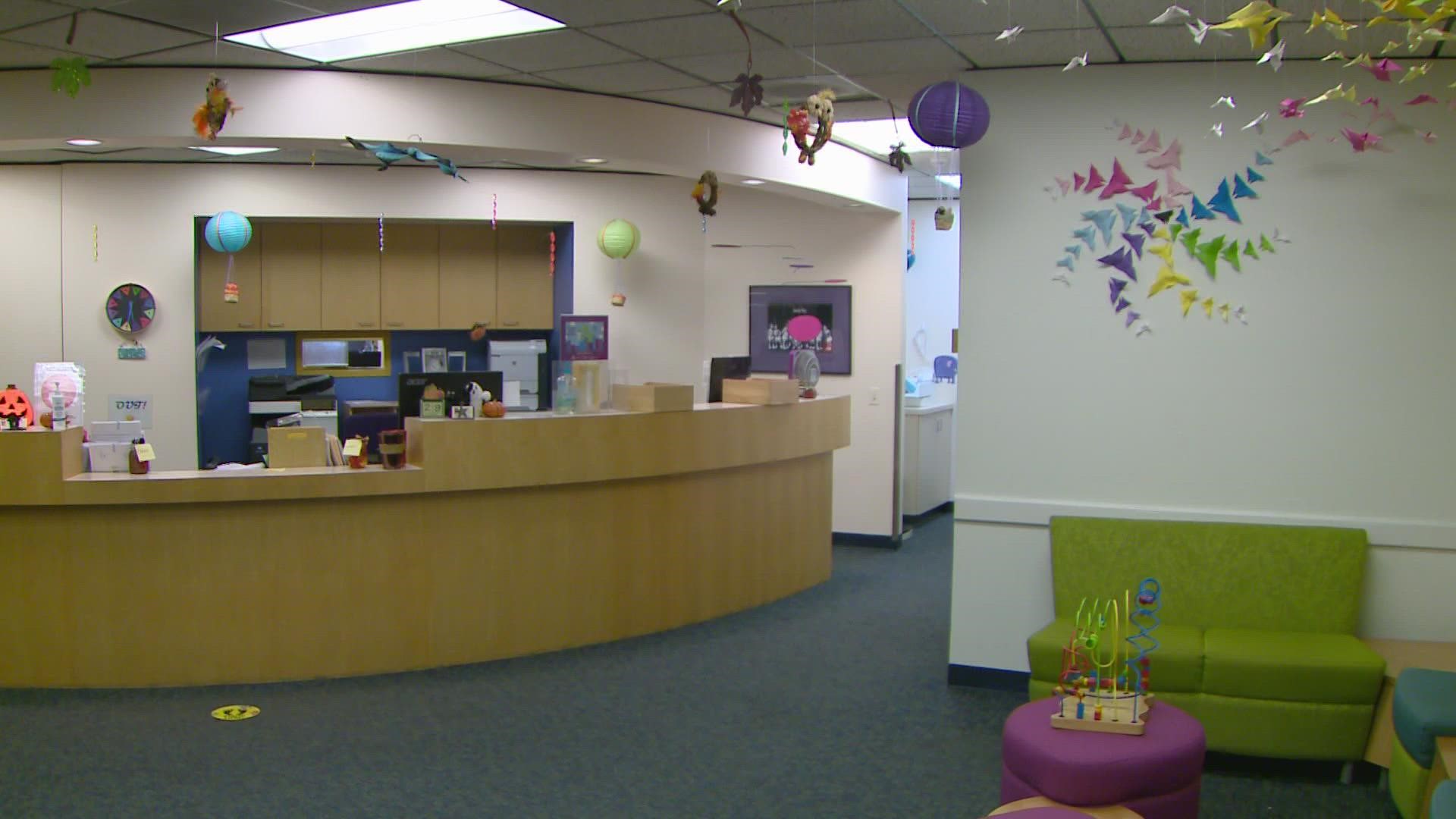GOLDEN, Colo. — While Dr. James Campbell of Denver West Pediatrics understands RSV cases are an annual occurance, he acknowledges the dangers it poses to young children and that it's spreading more than usual.
"First of all, the outbreak of RSV is coming very early. No one would typically see RSV cases at the end of summer, which we did or this much in the fall, which we are," Dr. Campbell said. "Many of these kids have not had RSV for one or two or three years because of the pandemic. So they're probably just not as well defended against it. RSV is a is an infection that people get on sometimes an annual basis. And so it can be worse if they haven't had it in a few years."
According to the Colorado Department of Public Health and Environment (CDPHE), since Oct. 1, 2022, there have been 292 RSV-associated hospitalizations in the Denver Metro, as well as 42 outbreaks statewide. CDPHE said that's more than double the number from the same timeframe in 2021.
Currently, 95% of hospitalizations are among children. Additionally, CDPHE has seen a sharp increase in reported RSV outbreaks occurring in child care and school settings.
Among the outbreaks, more than half have had at least one person involved in the outbreak seek care at a hospital.
For now, the state agency said they're supporting hospitals as they may see an increase in demand.


Dr. Campbell believes the pattern at which cases like this happen was disrupted by the COVID-19 pandemic, among other factors.
"And then the magnitude, the severity of symptoms this year, it does seem to be out of proportion to a normal year," he said.
However, he said the vast majority of babies and toddlers may not have life-threatening cases.
But he also advises parents to pay extra attention at their child's symptoms, should they develop.
"So probably our best guidance for parents is that if they have an infant, especially infant under the age of six months or even toddlers, that they do want to pay careful attention to their symptoms in their child if they demonstrate cold symptoms. So if they have a runny nose or a cough, that would put them kind of on alert to watch that baby closer. Are they breathing too fast? Are they breathing too hard? Do they have a high fever? Does it seem like they're just tiring out?" he explained. "Some of these children are so focused on breathing that they don't feed as well. And so they get dehydrated or they're so congested in their nose that they're not feeding as well. So those are kind of the red flags that we look for in a baby that might be headed in a direction where they could tire up."
In a statement from Children's Hospital Colorado on behalf of Dr. Kevin Messacar, an infectious disease specialist there, the hospital is seeing an uptick of RSV cases in addition to beginning to see influenza cases.
There was no RSV patient count provided by Children's Hospital, but the statement urges everyone eligible to get an influenza vaccination.


While there currently isn't a vaccine preventing RSV infections, scientists are working on developing one.
Researchers are trying to develop a new vaccine, but the protein the virus uses to infect human cells is tricky.
It rapidly changes its structure, making it difficult to develop a vaccine that can target it.
Two vaccines from Pfizer and GlaxoSmithKline have shown promise in older adults who are also at high-risk of severe illness.
Pfizer plans to expand their vaccine trial to younger kids, but it could take years.
There is a medicine that can help protect some babies at high risk for severe illness.
But it's mostly used for premature babies, and young kids with certain heart and lung conditions.
SUGGESTED VIDEOS: Latest from 9NEWS

